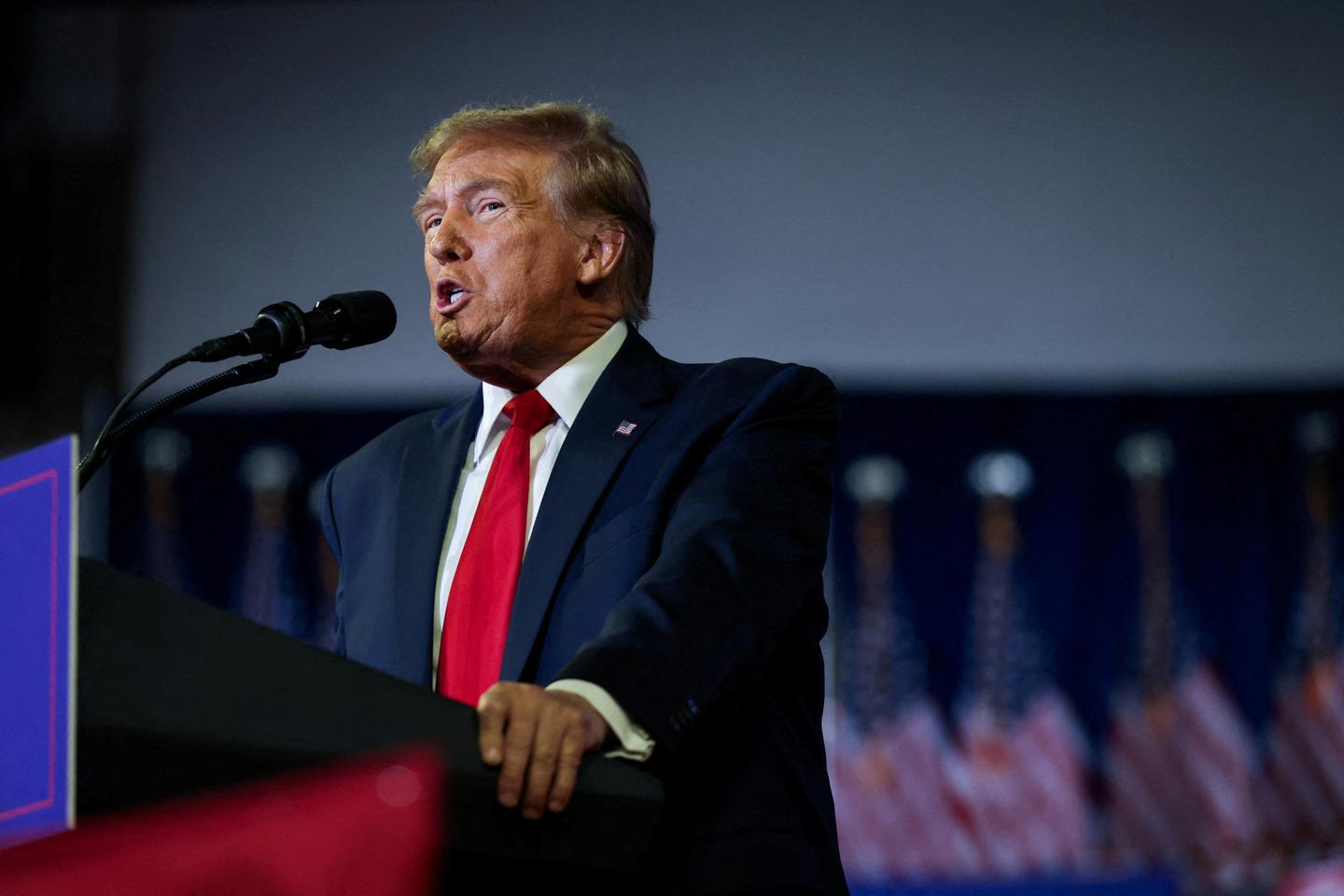


It wasn't Donald Trump's first salvo against Europe or NATO, but the enormity of his comments at an election rally in North Carolina on Saturday, February 10, was a wake-up call for Europeans. Not only did the former US president, who is running for a second term and is currently favored in the polls, assert that, under his authority, the United States would not defend NATO member countries that did not pay enough for their defense, but he also implied that he would encourage Russia to attack them.
The difference between this tirade and those to which Trump had accustomed NATO allies when he was in the White House is that, for almost two years now, full-scale war has been back in Europe, with precisely Russia in the role of the aggressor. Several European NATO countries bordering Ukraine, Belarus or Russia live with this threat every day and perceive it as existential.
Whether Trump was being deliberately provocative or not, whether he measured the impact of his statements or not, whether his message was intended to flatter the isolationist sentiments of his electorate or to panic the Europeans, it doesn't matter. What we must remember is that the man who may lead the US at the end of 2024 has cast doubt on the validity of the Alliance at a time when Europeans need reassurance the most. NATO's deterrent role collapses as soon as the adversarial power can doubt that it will be implemented.
Threats taken seriously
This appeal to Moscow should not be taken lightly, however fanciful it may seem. Already in 2018, during a summit meeting with Putin in Helsinki, then president Trump said that he gave more credence to what the Russian president told him than to his own intelligence services. This time around, Trump's comments coincide with efforts by Republican members of Congress to block US aid to Ukraine, and with a wide-ranging interview with Putin conducted in Moscow by Trump supporter Tucker Carlson. In this conversation, he indicated that he had no intention of attacking NATO members Latvia and Poland – two countries which, incidentally, spend a great deal on their defense. The convergence of Trump's and Putin's positions in this series of events is cause for concern among America's allies.
The alarmed reactions of several European leaders on Monday to Trump's remarks show that his threats are finally being taken seriously. In fact, they should serve as an electroshock. For too long, and even under Trump's presidency (2017-2021), Europeans have been under illusions about both the reality of the Russian threat and the priority of absolute US protection within an alliance conceived nearly 75 years ago in a totally different international context.
The invasion of Ukraine by Russia on February 24, 2022, was an eye-opener for Western Europe. Belatedly, Europeans are realizing that the world has changed and that they must, together and without waiting for the American presidential election in November, learn the lessons of this destructive Trump-Putin dynamic. And, finally, take charge of their own security.
